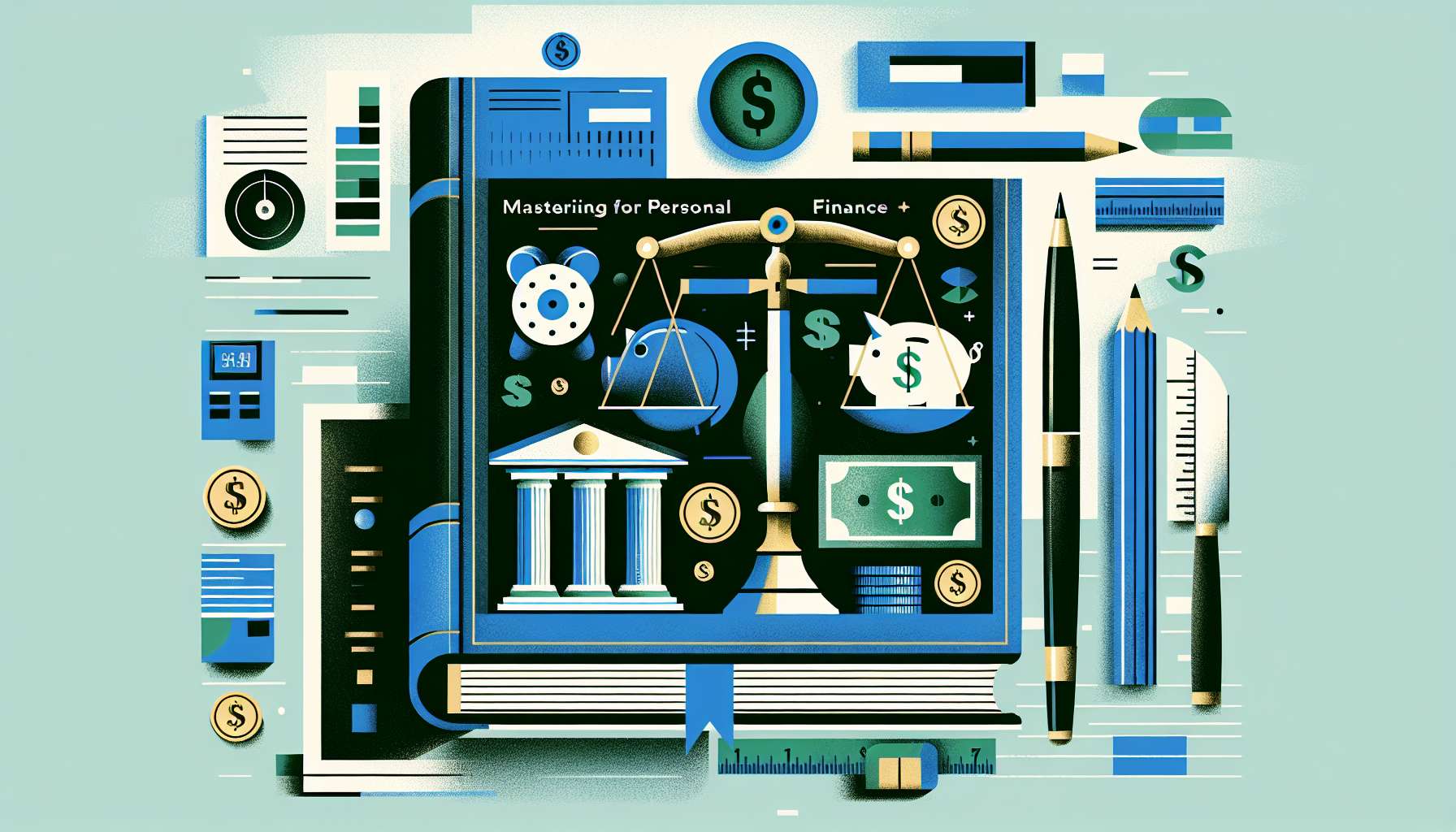Master Your Budget: Essential Personal Finance Tips for the USA


Anúncios
Mastering personal finance starts with learning the art of budgeting, which is essential for financial security and achieving long-term goals. Many Americans struggle with budgeting, feeling overwhelmed by the complexities. With proper techniques, budgeting becomes a powerful tool to track and optimize spending. This article aims to guide you through strategies to improve your financial health and embrace a lifestyle of control and confidence.
The U.S. sees a high average household debt, making budgeting crucial. It’s more than listing expenses; it’s about crafting a financial plan to keep debts at bay and save smartly. A shift in mindset towards budgeting as a beneficial habit, rather than a restriction, can bring about transformative results. Incorporating effective budgeting practices enables you to lead a life prioritizing financial goals over impulsive spends.
Embracing a structured approach to budgeting can significantly change how you handle finances. From planning expenses to tracking savings and investing wisely, budgeting leads to financial prowess. It’s about a proactive lifestyle where money management aligns with personal aspirations. Join a journey toward better financial literacy and independence, laying the foundation for future stability. Here are steps and methods to achieve effective budget management.
Anúncios
Calculating your income involves accounting for all sources, whether from a paycheck or side jobs. This provides a clear view of available funds. Simultaneously, categorizing expenses into fixed and variable aids in understanding spending patterns. Observing where money goes helps recognize areas to cut back, setting aside more for savings and urgent needs. Online tools can simplify this process for those less inclined towards manual tracking.
Setting financial goals is a crucial step in ensuring effective budgeting. These objectives, whether short-term like paying existing debts or larger goals such as home ownership, direct your financial actions. Analyzing spending to ensure it’s aligned with your goals helps maintain focus. When you track spending habits, patterns become apparent, enabling adjustments and wiser allocation of funds toward these ambitions.
Overview of the Article
Ultimately, budgets need to be flexible to accommodate life’s unforeseen circumstances. Adjust and adapt to changes in income or expenses wisely. Automation can support this, as setting up automatic transfers and reminders ensures goals aren’t forgotten amid busy schedules. Consistency in adhering to budget plans is key in transforming short-lived changes into lifelong habits, contributing to a healthier financial outlook.
Anúncios
Smart spending habits play a vital role in financial freedom. Challenges like a cash-only week prompt reconsideration of credit-dependent decisions. Implementing the 24-hour rule prevents spur-of-the-moment, non-essential purchases. Grocery shopping, often prone to overspending, can be managed by sticking to a list and avoiding shopping when hungry, thereby maintaining control over impulsive purchases and enabling savings.
Strengthening the financial foundation encompasses securing emergencies and planning ahead. Establishing an emergency fund begins the safeguarding process. Even modest initial contributions grow into substantial financial cushions over time. Investing in future growth, through avenues like 401(k) or IRAs, leverages existing resources to generate returns. Understanding these prospects or seeking expert advice ensures choices are informed and growth-oriented.
Characteristics and Actionable Tips
- Track all income and expenses diligently.
- Categorize expenses into necessities and discretionary items.
- Consistently review and adjust budget to reflect goals.
- Utilize technology for ease in budgeting.
- Prioritize saving and smart investments.
Benefits of Effective Budgeting
Success in budgeting culminates in multiple benefits. A disciplined approach reduces reliance on credit, curbing interest payments. Prioritizing debt repayment, using methods like Snowball or Avalanche, frees up funds for future goals. Decision-making becomes dispassionate, based on tracked patterns rather than spurts of desire. Fiscal prudence fosters psychological welfare, mitigates financial stress, and avails resources for passion projects and experiences.
Adopting budgeting as a lifestyle leads to enriched life quality. Gains extend beyond monetary, with confidence in financial self-reliance growing with achievement of set goals. As debts shrink and savings blossom, the flexibility in lifestyle choices increases. The liberation from financial worries enhances mental health. Responsible, proactive management of finances opens doors to opportunities that once seemed unreachable.
Budgeting is a dynamic, evolving practice. Economic environments change, demanding regular revisions of strategies to stay relevant and responsive. Financial literacy enlarges through embracing new ideas and methodologies in managing resources. Social responsibility can become part of budgeting, with investments supporting sustainable and ethical avenues. Such holistic views enrich the financial tapestry of life.
By demystifying budgeting, following practical steps, and understanding underlying principles, a lifestyle of financial foresight and control becomes attainable. With dedication, these techniques shape pathways to stability and prosperity. An empowering sense of achievement accompanies every milestone reached. Whether tackling debts, growing savings, or planning investments, effective budgeting distinguishes journeys toward financial excellence.
Ultimately, mastering budgeting as an essential aspect of personal finance empowers Americans to transcend financial obstacles. This pursuit cultivates awareness, transforming impulsive consumption into strategic planning. With incremental steps, it’s possible to conquer fiscal challenges and stride confidently into future endeavours. Empowerment through budget mastery holds the promise of a life enriched by financial liberation.
- Reducing debts lessens financial burdens associated with interest.
- Strategic planning averts impulse purchases, favoring thoughtful allocation.
- Budget discipline heightens consciousness in finance management.
- Effective budgeting supports a healthier financial life and mental peace.





